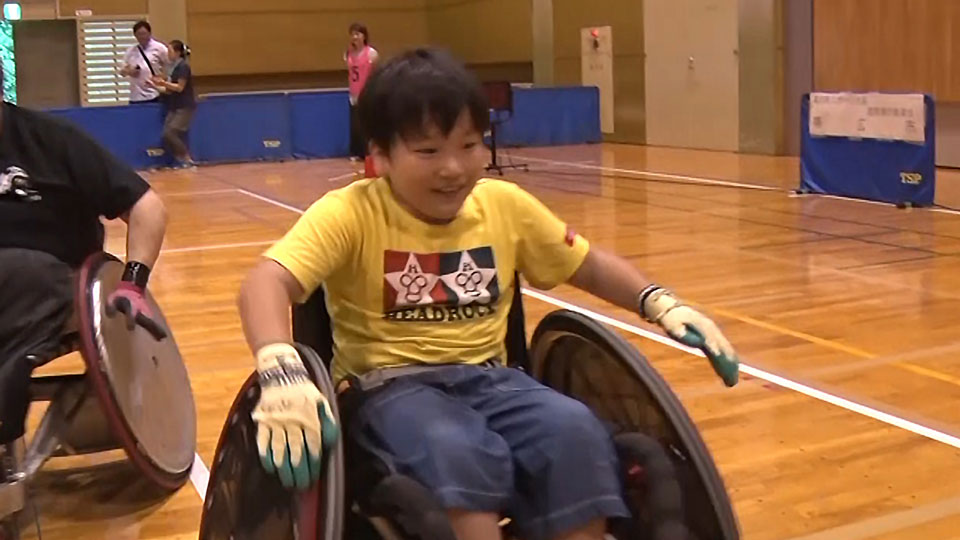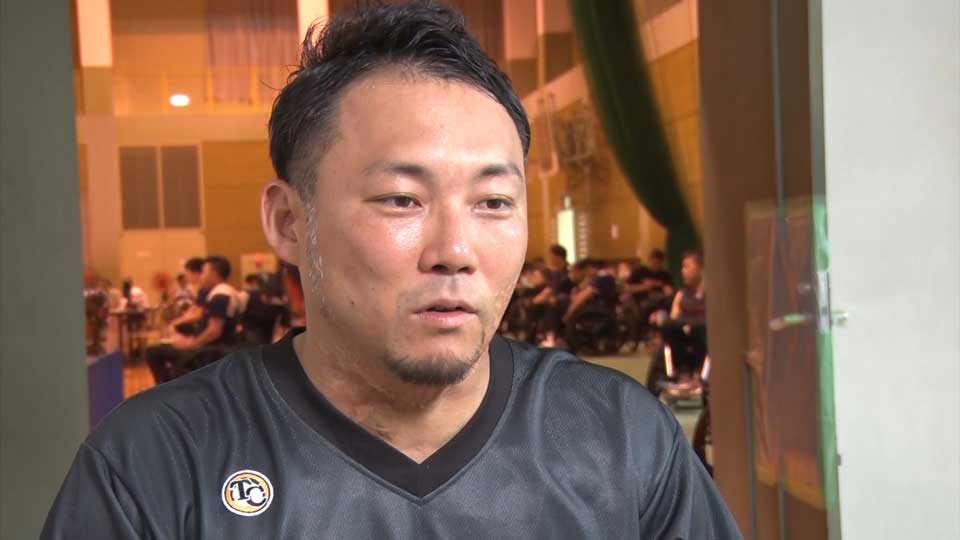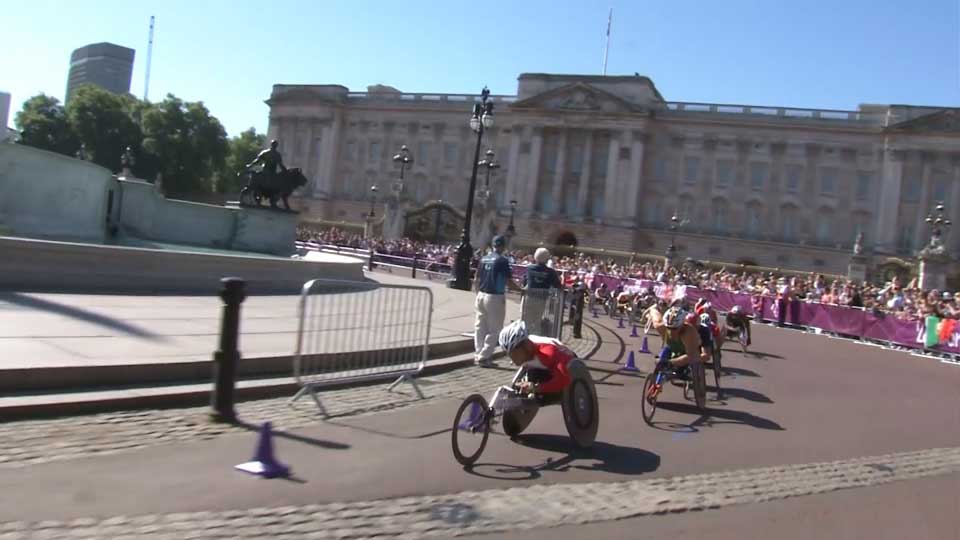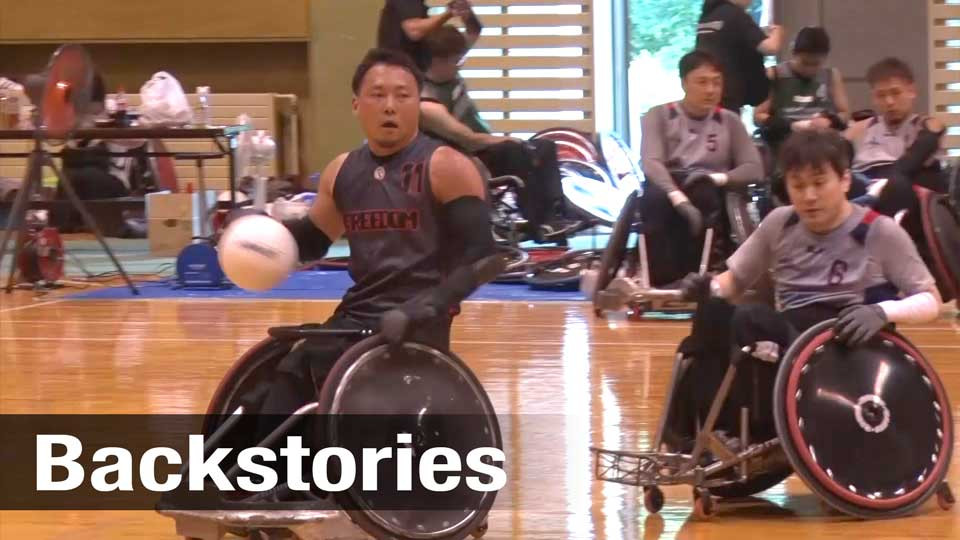Children's anticipation
Children at a gymnasium in Makubetsu, a town in southeastern Hokkaido, are cheering for their favorite team as they take on much stronger opposition. It’s part of qualification for the national Wheelchair Rugby championship. Three teams participate in league matches on this day, including the Freedom. They hail from the western city of Kochi and their star player is Yukinobu Ike, the captain of Japan’s national team. He led them to their first ever Wheelchair Rugby World Championship title in 2018.
Kota Takayama is among the excited fans. The ten-year old looks fascinated by the athletes as they crash their wheelchairs at each other, aggressively chasing the ball.
Wheelchair rugby was introduced to Japan in the mid-90s. In an effort to raise awareness about the sport, the organizers let spectators experience what it’s like to ride on the fortified wheelchairs the athletes use. Children, with or without disabilities, get on and play tag.

Born with cerebral palsy, Kota has been a wheelchair user all his life. He is skilled at maneuvering his chair, catching other children, and is smiling the whole time.
“It was so cool to see the rugby players. I may be able to be like them when I grow up!”.
Ike lost three of his friends in a car accident when he was 19 years old. He suffered burns so severe that his left leg had to be amputated and he underwent 40 surgeries in two years.
“Last year when we won gold at the World Championships, I was always thinking about my friends who died in the accident. The victory was for them."
But now, as he prepares for the Tokyo Paralympics, he realizes there's an even bigger picture.
“I may be somebody’s hope," he says. "I know victory isn’t only for myself. I want to share it with all the people who cheer us on.”

Effects of Tokyo Paralympics
As Japan gears up to host the big event, some of the effects are already becoming clear. The Government has been pushing for infrastructure changes, such as making air and train terminals, hotels and sports facilities more accessible. And schools are teaching students about the Paralympics.

Craig Spence, Chief Marketing and Communications Officer of the International Paralympics Committee, says he expects the games to leave a huge legacy. Spence is from the United Kingdom where, he says, the 2012 Paralympic Games had “a seismic effect on our people.” He says the event broke down prejudices against the impaired, with studies showing that one in three British people changed their attitude toward disability.
“A number of employers saw the Paralympics and then thought twice the next time they had a job interview with a person who was in a wheelchair or had a disability.” He says. And in the four years since those Games, he says, one million people with disabilities have found employment.

Legacy of 2020
The last time Tokyo hosted the Summer Olympics, back in 1964, Japan wanted to show the world that it had rebuilt itself from the devastation of World War II and was now a peaceful and democratic nation. The Paralympics portion featured just 375 athletes. The initial purpose of the Paralympics was to encourage former soldiers injured in wars to rehabilitate. But the Games have grown since then, and the IPC expects a record 4,400 para-athletes to compete in Tokyo.
Making Japan more accessible will pay dividends beyond the disabled community. Japan's population is aging rapidly, and the number of seniors using wheelchairs, canes or crutches is only going to grow.
If it becomes easier for them to get around, and if society changes to be more inclusive, that will be another important legacy of the Games.

